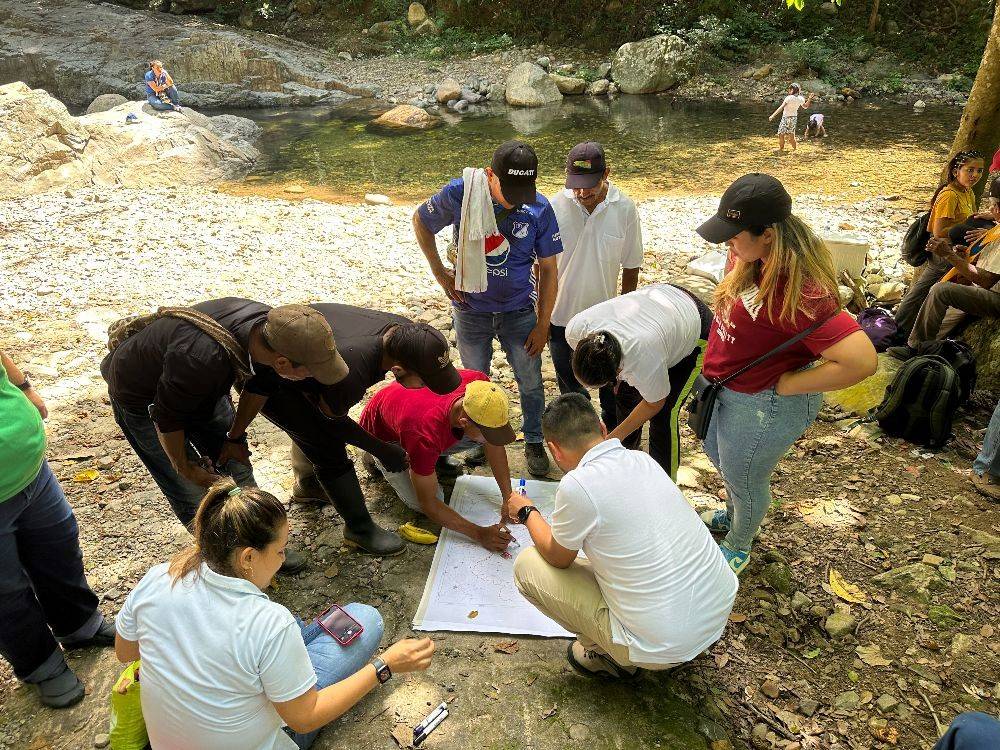
The high-iron bean project, supported by FONTAGRO, is carrying out an important initiative to disseminate agroclimatic risk management tools in collaboration with academia and Caribbean producers. This strategic collaboration primarily aims to improve farmers' resilience to changing climate conditions, which represent a constant challenge to agricultural production.
The project focuses on growing high-iron beans, a vital component in addressing nutritional deficiencies in the region. Beyond simply promoting production, the initiative is concerned with strengthening the capacity of farmers to face the risks associated with extreme climate events, such as droughts or floods. Effective management of these risks is crucial to ensuring stability in food production and food security in the Caribbean.
A highlight of this project is the direct collaboration with academia and producers. By involving academia, research and the application of scientific knowledge in agroclimatic risk management is encouraged, providing farmers with access to up-to-date information and evidence-based strategies.
Collaboration with producers is essential to ensure that the tools and practices developed are practical and effective in the real context of agriculture. The active participation of farmers not only improves the applicability of the proposed solutions, but also strengthens local capacity to respond to future challenges.
In summary, the high iron bean project not only focuses on agricultural production, but also comprehensively addresses the associated climate challenges. The combination of academic research and practical experience of producers in the Caribbean region highlights the importance of multifaceted collaborations to address complex problems and promote resilience in agriculture. This integrated approach not only benefits local farmers and food security, but also has broader implications for agricultural sustainability in the region.
The high-iron bean project, supported by FONTAGRO, is carrying out an important initiative to disseminate agroclimatic risk management tools in collaboration with academia and Caribbean producers. This strategic collaboration primarily aims to improve farmers' resilience to changing climate conditions, which represent a constant challenge to agricultural production.
The project focuses on growing high-iron beans, a vital component in addressing nutritional deficiencies in the region. Beyond simply promoting production, the initiative is concerned with strengthening the capacity of farmers to face the risks associated with extreme climate events, such as droughts or floods. Effective management of these risks is crucial to ensuring stability in food production and food security in the Caribbean.
A highlight of this project is the direct collaboration with academia and producers. By involving academia, research and the application of scientific knowledge in agroclimatic risk management is encouraged, providing farmers with access to up-to-date information and evidence-based strategies.
Collaboration with producers is essential to ensure that the tools and practices developed are practical and effective in the real context of agriculture. The active participation of farmers not only improves the applicability of the proposed solutions, but also strengthens local capacity to respond to future challenges.
In summary, the high iron bean project not only focuses on agricultural production, but also comprehensively addresses the associated climate challenges. The combination of academic research and practical experience of producers in the Caribbean region highlights the importance of multifaceted collaborations to address complex problems and promote resilience in agriculture. This integrated approach not only benefits local farmers and food security, but also has broader implications for agricultural sustainability in the region.




